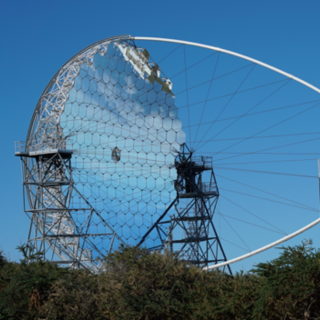Bibcode
Aleksić, J.; Ansoldi, S.; Antonelli, L. A.; Antoranz, P.; Babic, A.; Bangale, P.; Barrio, J. A.; Becerra González, J.; Bednarek, W.; Bernardini, E.; Biasuzzi, B.; Biland, A.; Blanch, O.; Bonnefoy, S.; Bonnoli, G.; Borracci, F.; Bretz, T.; Carmona, E.; Carosi, A.; Colin, P.; Colombo, E.; Contreras, J. L.; Cortina, J.; Covino, S.; Da Vela, P.; Dazzi, F.; De Angelis, A.; De Caneva, G.; De Lotto, B.; Wilhelmi, E. de Oña; Mendez, C. Delgado; Prester, D. Dominis; Dorner, D.; Doro, M.; Einecke, S.; Eisenacher, D.; Elsaesser, D.; Fonseca, M. V.; Font, L.; Frantzen, K.; Fruck, C.; Galindo, D.; García López, R. J.; Garczarczyk, M.; Terrats, D. Garrido; Gaug, M.; Godinović, N.; Muñoz, A. González; Gozzini, S. R.; Hadasch, D.; Hanabata, Y.; Hayashida, M.; Herrera, J.; Hildebrand, D.; Hose, J.; Hrupec, D.; Idec, W.; Kadenius, V.; Kellermann, H.; Kodani, K.; Konno, Y.; Krause, J.; Kubo, H.; Kushida, J.; La Barbera, A.; Lelas, D.; Lewandowska, N.; Lindfors, E.; Lombardi, S.; Longo, F.; López, M.; López-Coto, R.; López-Oramas, A.; Lorenz, E.; Lozano, I.; Makariev, M.; Mallot, K.; Maneva, G.; Mankuzhiyil, N.; Mannheim, K.; Maraschi, L.; Marcote, B.; Mariotti, M.; Martínez, M.; Mazin, D.; Menzel, U.; Miranda, J. M.; Mirzoyan, R.; Moralejo, A.; Munar-Adrover, P.; Nakajima, D.; Niedzwiecki, A.; Nilsson, K.; Nishijima, K.; Noda, K.; Orito, R.; Overkemping, A.; Paiano, S.; Palatiello, M.; Paneque, D. et al.
Bibliographical reference
Science, Volume 346, Issue 6213, pp. 1080-1084 (2014).
Advertised on:
11
2014
Journal
Citations
156
Refereed citations
121
Description
Supermassive black holes with masses of millions to billions of solar
masses are commonly found in the centers of galaxies. Astronomers seek
to image jet formation using radio interferometry but still suffer from
insufficient angular resolution. An alternative method to resolve small
structures is to measure the time variability of their emission. Here we
report on gamma-ray observations of the radio galaxy IC 310 obtained
with the MAGIC (Major Atmospheric Gamma-ray Imaging Cherenkov)
telescopes, revealing variability with doubling time scales faster than
4.8 min. Causality constrains the size of the emission region to be
smaller than 20% of the gravitational radius of its central black hole.
We suggest that the emission is associated with pulsar-like particle
acceleration by the electric field across a magnetospheric gap at the
base of the radio jet.
Related projects

Particle Astrophysics
The members of the Particle Astrophysics Group of the IAC participate actively in three large international collaborations of high-energy astrophysics: AMS-02 (Alpha Magnetic Spectrometer), the Cherenkov radiation telescopes MAGIC I and II and the Cherenkov Telescope Array Observatory ( CTAO). We also participate in the ASTRI mini-array, the gamma
Mónica Luisa
Vázquez Acosta